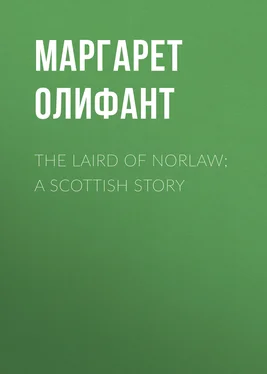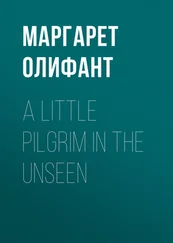Маргарет Олифант - The Laird of Norlaw; A Scottish Story
Здесь есть возможность читать онлайн «Маргарет Олифант - The Laird of Norlaw; A Scottish Story» — ознакомительный отрывок электронной книги совершенно бесплатно, а после прочтения отрывка купить полную версию. В некоторых случаях можно слушать аудио, скачать через торрент в формате fb2 и присутствует краткое содержание. Жанр: foreign_prose, literature_19, foreign_antique, на английском языке. Описание произведения, (предисловие) а так же отзывы посетителей доступны на портале библиотеки ЛибКат.
- Название:The Laird of Norlaw; A Scottish Story
- Автор:
- Жанр:
- Год:неизвестен
- ISBN:нет данных
- Рейтинг книги:3 / 5. Голосов: 1
-
Избранное:Добавить в избранное
- Отзывы:
-
Ваша оценка:
- 60
- 1
- 2
- 3
- 4
- 5
The Laird of Norlaw; A Scottish Story: краткое содержание, описание и аннотация
Предлагаем к чтению аннотацию, описание, краткое содержание или предисловие (зависит от того, что написал сам автор книги «The Laird of Norlaw; A Scottish Story»). Если вы не нашли необходимую информацию о книге — напишите в комментариях, мы постараемся отыскать её.
The Laird of Norlaw; A Scottish Story — читать онлайн ознакомительный отрывок
Ниже представлен текст книги, разбитый по страницам. Система сохранения места последней прочитанной страницы, позволяет с удобством читать онлайн бесплатно книгу «The Laird of Norlaw; A Scottish Story», без необходимости каждый раз заново искать на чём Вы остановились. Поставьте закладку, и сможете в любой момент перейти на страницу, на которой закончили чтение.
Интервал:
Закладка:
If Cosmo was a poet he was not aware of it; yet his heart was easing itself after his fashion. He was too young to apprehend the position of his mother, and how it broke into the superficial romance of his father’s life. He thought only of Mary of Melmar, of the girl, beautiful, young, and unfortunate, who ran away “for love,” and had literally left all for her husband’s sake; he thought of displacing his father’s enemy and restoring his father’s first love to her rights. In imagination he pursued her through all the storied countries to which a young fancy naturally turns. He saw himself delivering her out of dangers, suddenly appearing when she was in peril or poverty, dispersing her enemies like a champion of chivalry, and bringing her home in triumph. This was how, while his brothers comforted themselves with an earnest discussion of possibilities, and while his mother, differing from them as age differs from youth—and as personal bereavement, which nothing can ever make up, and which changes the whole current of a life, differs from a natural removal and separation—returned into the depths of the past and lived them over again—this is how Cosmo made his first personal escape out of his first grief.
CHAPTER XIII
“Oh! Patricia! Sinclair has been telling me such a story,” cried a young girl, suddenly rushing upon another, in a narrow winding road through the woods which clothed a steep bank of Tyne; at this spot, for one exclusive mile, the rapid little river was “private property,” the embellishment of a gentleman’s grounds—shut out from vulgar admiration. Tyne, indifferent alike to admiration and exclusivism, was not less happy on that account; but foamed over his stony channel as brisk, as brown, and as clear, as when he ran in unrestricted freedom by the old castle walls of Norlaw. The path was slippery and irregular with great roots of trees, and one or two brooks, unseen, trickled down the brae below the underwood, only detected by the slender, half visible rivulet on the path which you had to step across, or the homely plank half penetrated by water, which bridged over Tyne’s invisible tributary. They did not appear, these fairy springs, but they added each a tingle, like so many harp strings, to the many sounds of Nature. Through this winding road, or rather upon it, for she was not going anywhere, the elder of these two interlocutors had been for some time wandering. She was a delicate looking girl of seventeen, with blue eyes and pale golden hair, rather pretty, but very slight, and evidently not in strong health. The sudden plunge down upon her, which her younger sister made from the top of the brae, took away Patricia’s breath, and made her drop the book which she had been reading. This was no very great matter, for the book was rather an indifferent production, being one of those books of poetry which one reads at seventeen, and never after—but it was rather more important that the color came violently into her pale cheek, and she clasped her hands upon her side, with a gasp which terrified the young hoiden.
“Oh, I forgot!” she cried, in sympathy, as eager as her onslaught had been. “Oh! have I hurt you? I did not mean it, you know.”
“No, Joanna,” said Patricia, faintly, “but you forget my nerves always—you never had any yourself.”
Which was perfectly true, and not to be denied. These two, Patricia and Joanna Huntley, were the only daughters of their father’s house—the only children, indeed, save one son, who was abroad. There were not many feminine family names in this branch of the house of Huntley, and invention in this matter being very sparely exercised in these parts, it came about that the girls were called after their uncles, and that the third girl, had there been such an unlucky little individual, following in the track of her sisters, would have turned out Jemima or Robina, according as the balance rose in favor of her father’s brother or her mother’s. Fortunately, Joanna was the last fruit of the household tree, which had blossomed sparely. She was only fifteen, tall, strong, red haired, and full of vigor—the greatest contrast imaginable to her pretty pale sister, whom Joanna devoutly believed in as a beauty, but secretly did somewhat grieve over as a fool. The younger sister was not in the least pretty, and knew it, but she was clever, and Joanna knew that also, which made an agreeable counterpoise. She was extremely honest, downright and straightforward, speaking the truth with less elegance than force, but speaking it always; and on the whole was a good girl, though not always a very pleasant one. At this present moment she was flushed, breathless, and eager, having run all the way from the house with something to tell. But Patricia’s “nerves” could not bear the sudden announcement, though that delicate young lady loved a piece of news fully as well as her sister. Joanna, therefore, stood still, making hasty and awkward apologies, and eager to do something to amend her mistake, while her delicate companion recovered breath. There was something more than nerves in the young lady’s discomposure. She was feeble by nature, the invalid of the family, which Joanna, knowing no sympathetic ailment in her own vigorous person, sometimes had the ill luck to forget.
“And my poor book!” said poor Patricia, picking up the unfortunate volume, which lay fluttering with open leaves on the very edge of that tiny current trickling over the brown path, which, save that it moved and caught an occasional sparkle of light, you could not have distinguished to be a burn. “Oh, Joanna, you are so thoughtless! what was all this haste about?”
“Oh, such a story!” cried Joanna, eagerly. “It’s easy to speak about nerves—but when I heard it I could have run to papa and given him a good shake—I could! and he deserved it! for they say it was all his blame.”
“I should like to hear what it was,” said Patricia, with an exasperating and intolerable meekness, which usually quite overpowered the patience of her sister.
But Joanna was too much interested in the present instance.
“It was Mr. Livingstone of Norlaw,” she said, sinking her voice; “he’s dead, and his funeral was stopped because he was in debt, and it was papa that did it—and the three boys got up at midnight and carried him on their shoulders, with torches in their hands, to Dryburgh, and buried him there. Sinclair says it’s true, every word; and I don’t know whether Huntley did not swim over Tweed to get the boat. Oh, Patricia! I feel as if I could both greet and cry hurra, if I were to see them; and as for papa, he deserves—I don’t know what he does not deserve!”
“I wish you would talk like a lady, Joanna,” said her sister, without taking any notice of this unfilial sentiment; “greet! you could just as well say cry, or weep, for that matter—and it’s only common people that say Tweed, as if they meant a person instead of a river; why don’t you say the Tweed, as people of education say?”
“He’s the truest person I know,” cried Joanna. “Tweed and Tyne! you may say that they’re just streams of water, if you like, but they’re more to me; but the question is papa—I knew he was ill enough and hard-hearted, but I never, never thought he could have been so bad as that—and I mean to go this very moment and ask him how it was.”
“I suppose papa knows better than we do,” said Patricia, with a slight sigh; “but I wish he would not do things that make people talk. It is very annoying. I dare say everybody will know about this soon, if it’s true. If it was all himself it would not so much matter, and you never go out anywhere, Joanna, so you don’t feel it—but is very unpleasant to mamma and me.”
“I was not thinking of either mamma or you; I was thinking of the Livingstones,” cried Joanna, with a flush of shame on her cheeks; “and I mean to go in this very instant, and ask him what it means.”
Читать дальшеИнтервал:
Закладка:
Похожие книги на «The Laird of Norlaw; A Scottish Story»
Представляем Вашему вниманию похожие книги на «The Laird of Norlaw; A Scottish Story» списком для выбора. Мы отобрали схожую по названию и смыслу литературу в надежде предоставить читателям больше вариантов отыскать новые, интересные, ещё непрочитанные произведения.
Обсуждение, отзывы о книге «The Laird of Norlaw; A Scottish Story» и просто собственные мнения читателей. Оставьте ваши комментарии, напишите, что Вы думаете о произведении, его смысле или главных героях. Укажите что конкретно понравилось, а что нет, и почему Вы так считаете.












